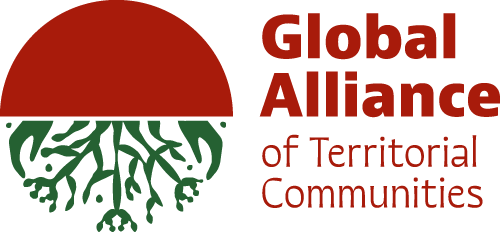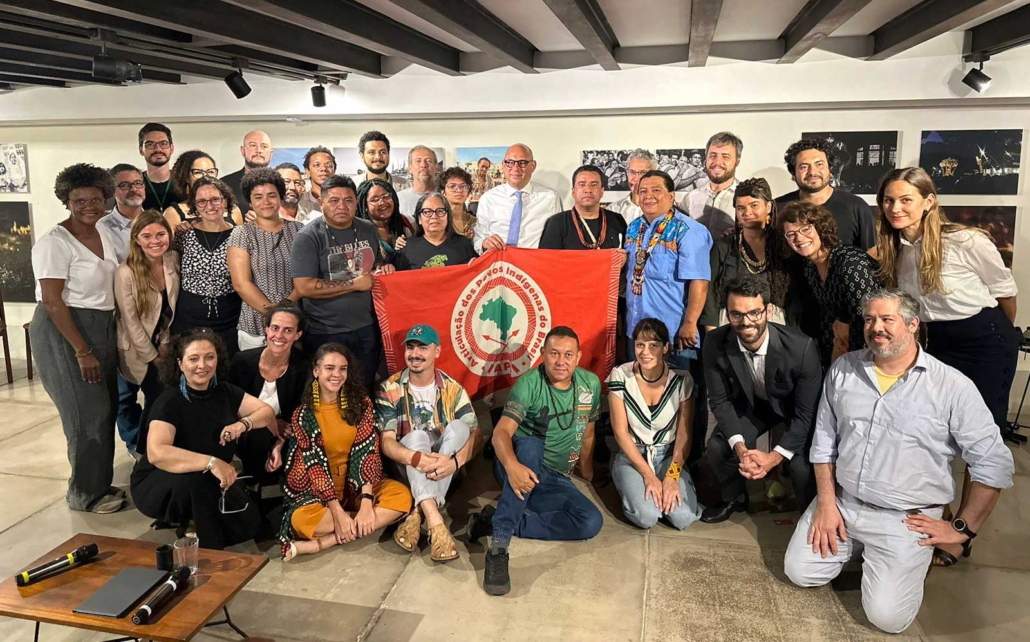The Amazon Summit (8th and 9th of August) and the Amazon Dialogues (Diálogos Amazônicos) (4th to 6th of August) have sparked vital discussions about the preservation of the world’s largest rainforest and its immense ecological significance. However, it is crucial to emphasise that these discussions cannot be complete without the active involvement of the Indigenous Peoples and Local Communities who have historically been the most effective stewards of this invaluable ecosystem.
The importance of this inclusive approach was underscored by the Articulation of Indigenous Peoples of Brazil (APIB) and various indigenous organisations during the lead up to the Amazon Summit. The Indigenous Peoples of the Amazon came together to highlight the pressing issues surrounding the Amazon rainforest, particularly the threats posed by the Time Frame (Marco Temporal) thesis and the approaching “point of no return”.
During the Amazon Summit the leaders of eight Amazon countries, Bolivia, Brazil, Colombia, Ecuador, Guyana, Guyana, Peru, Suriname and Venezuela will seek to renew the Amazon Cooperation Treaty (ACT) and its related organisation (ACTO). The goal is to achieve a comprehensive agreement for the Amazon’s future. However, it is imperative to remember that any approach to preserving the rainforest must be informed by the collective wisdom of the people who have nurtured and protected these lands for generations.
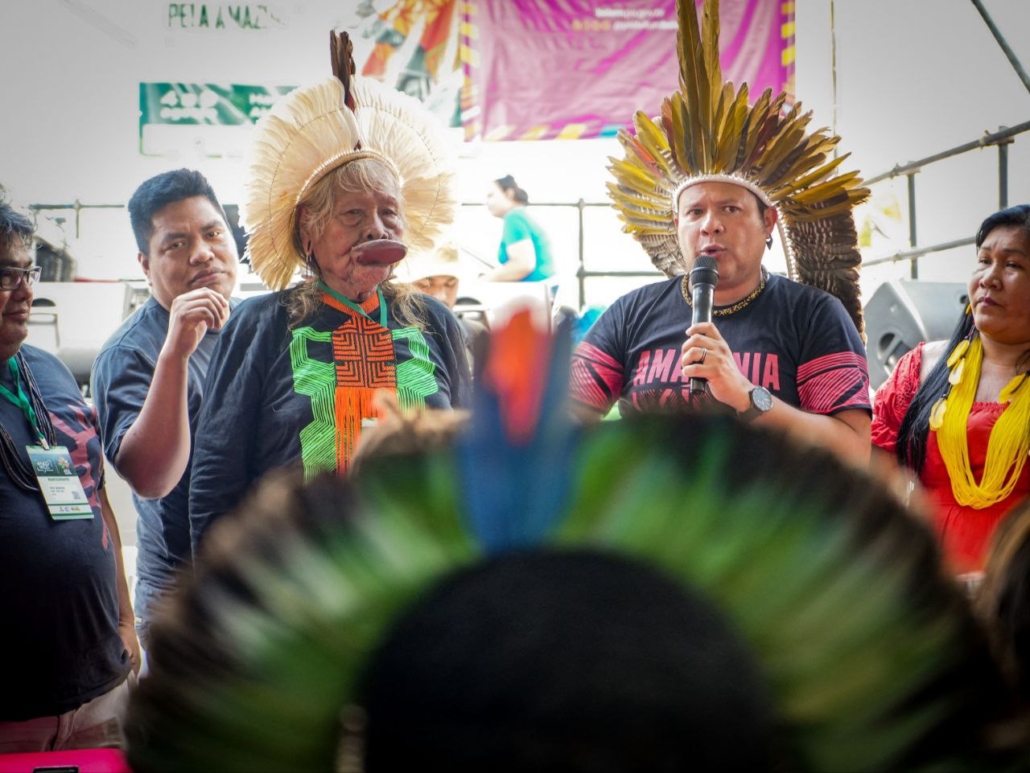
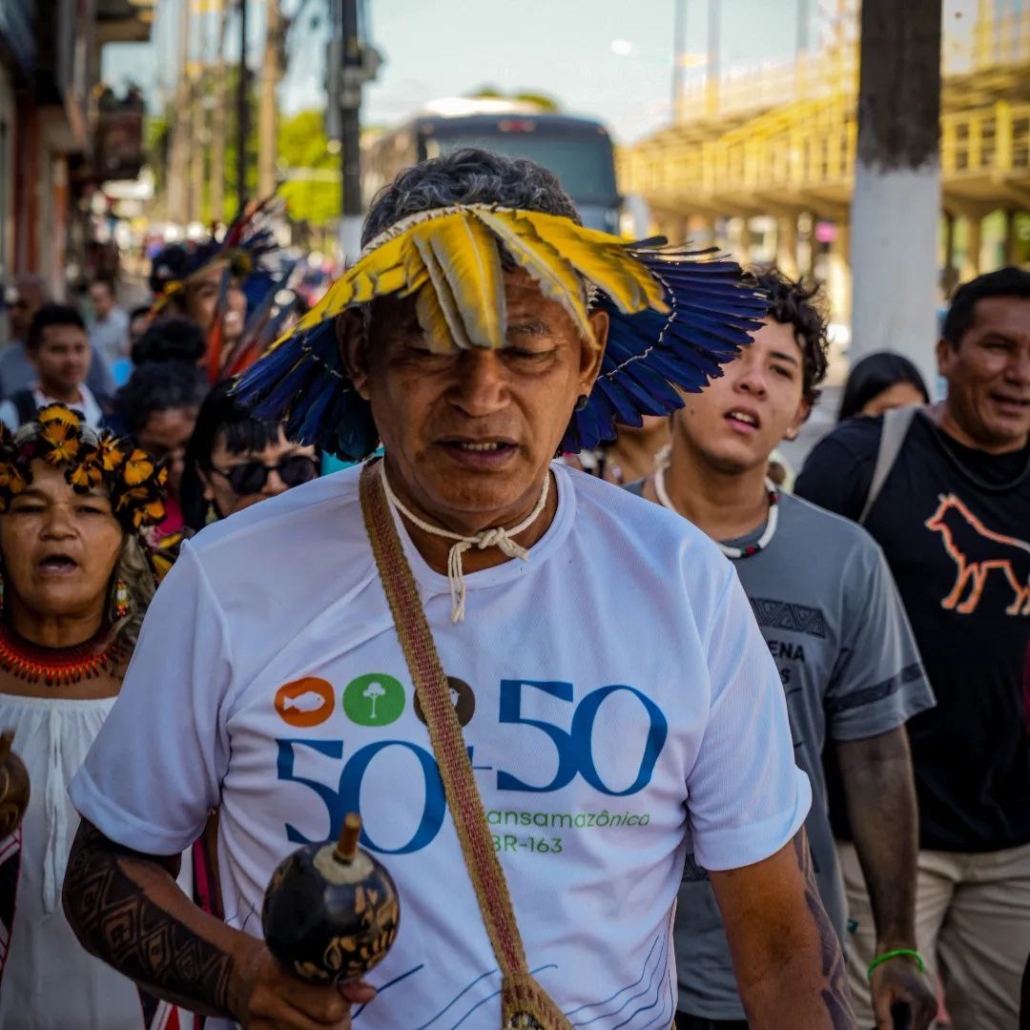
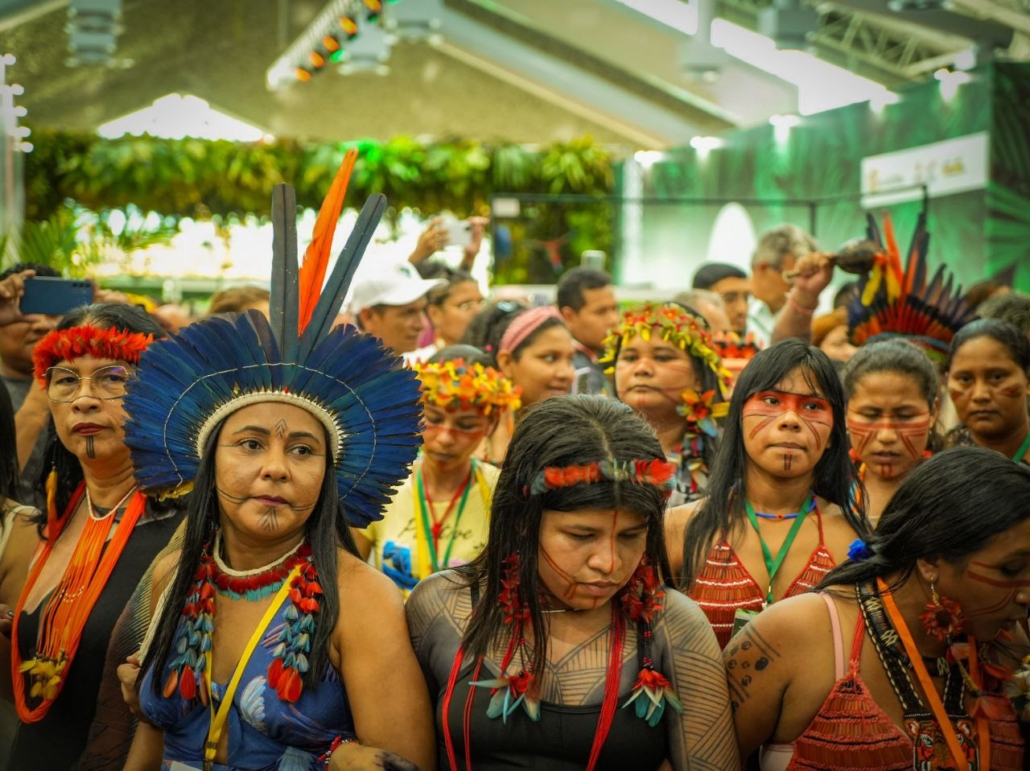
Multiple studies, including recent evidence by the Monitoring of the Andean Amazon Project (MAAP), consistently support the idea that the preservation and sustainable management of the Amazon are intrinsically tied to the rights and involvement of its native inhabitants. In fact, indigenous territories in all the Amazon have lower deforestation rates than any other land, including nationally protected areas.
However, policy makers around the region are yet to commit to demarcating more lands to Indigenous Peoples, and some governments are doing the exact opposite. In Brazil indigenous peoples have been standing up against the Time Frame thesis, a legal argument that exclusively grants land rights to peoples who were present on or in contention of a specific piece of land on October 5, 1988, the day the Federal Constitution was enacted. This assertion fails to consider instances of displacement and the encroachment of settlements by land exploiters and timber merchants.
“We are more than 180 peoples in the Brazilian Amazon, and there is no way we could speak, there is no way we can dialogue about preservation without talking about demarcation of indigenous territories” , said Auricélia Arapiun from the Coordination of the Indigenous Organizations of the Brazilian Amazon (COAIB) during the the Amazon Dialogues plenary. “We do not want a discussion in which we are not heard. We want respect for our right to Free, Prior, Informed Consent; we want to see the effectiveness of policies that protect our territories” she added.
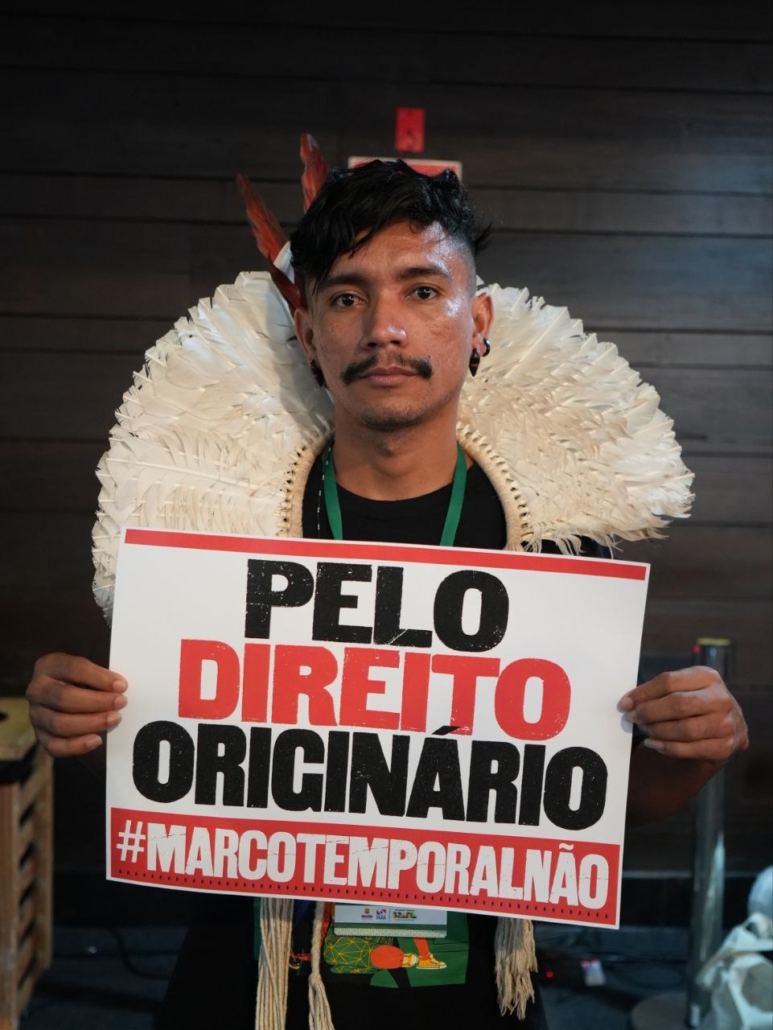
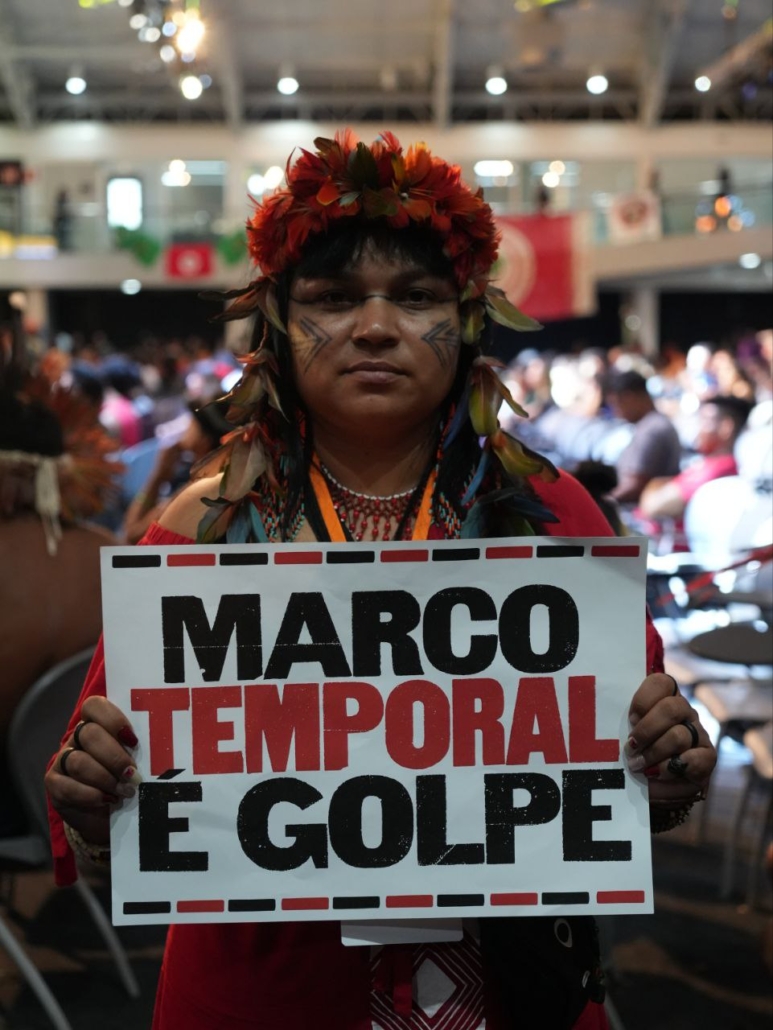
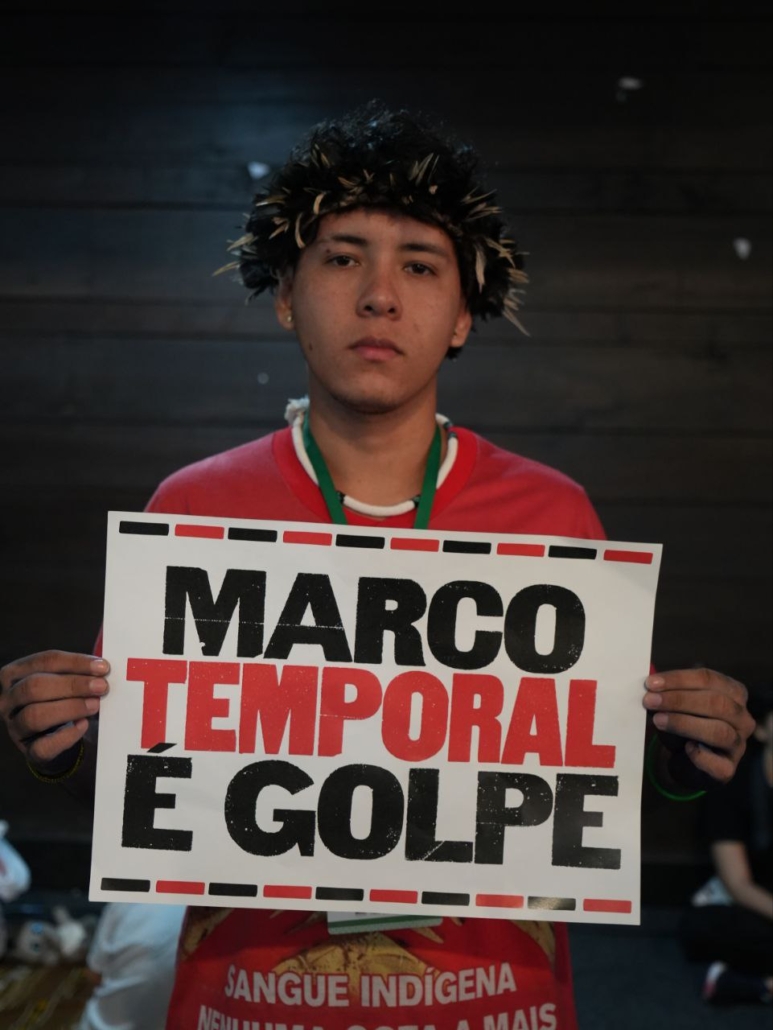
In a recent letter written by APIB and several other organisations of the region mentioned the following: “We demand that our own forms of territorial organisation and traditional and original occupation, which are independent and prior to State recognition, be considered” and also pointed out that “Discussing the future of the Amazon without Indigenous peoples is equivalent to violating our original rights and all the work we do for human life on the planet.”
As we move forward in our collective mission to safeguard the Amazon rainforest, it is imperative to ensure that the voices of Indigenous Peoples and Local Communities remain at the forefront of the conversation. The preservation of this invaluable natural treasure hinges on our ability to include and respect those who have been its guardians for time immemorial. Without their insights, traditions, and active participation, any debate around Amazon conservation would be incomplete and inherently flawed. Let us stand united in recognizing the significance of inclusive dialogue and equitable collaboration for the future of the Amazon and our planet.
To support Indigenous Peoples and Local Communities during the Amazon Summit follow and donate to the Articulation of Indigenous Peoples of Brazil (@apiboficial).
all photos: @cristian-arapiun
